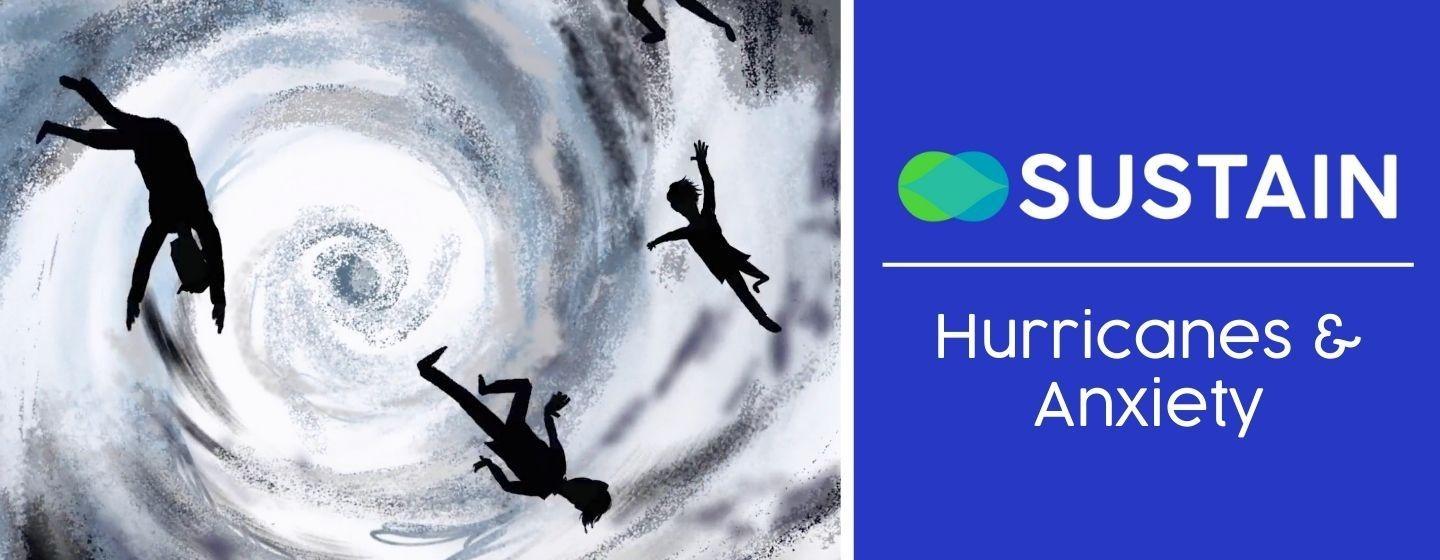Hurricanes & Anxiety



Florida’s hurricanes and tropical storms can tear houses to pieces, wrench boats from their moorings and leave docks twisted and deformed. They don’t have be catastrophically strong to be destructive: Hurricane Frances, a Category 2 storm, spawned 103 tornadoes. An unnamed storm in December 2023 prompted gale warnings and brought 3 to 5 feet of storm surge along the Gulf Coast.
Hurricanes also take an invisible toll, leaving intense stress and anxiety in their wake. Survivors may even feel guilt for having lived through a storm when others did not.
About 20 to 30% of people who live through a hurricane develop depression and/or post-traumatic stress disorder within the first few months after the disaster. The anniversary of a major storm, or sights and sounds that remind survivors of their experience, can trigger stressful memories and fears.
Floridians may feel intense anxiety before, during and after a hurricane.
It’s also natural to feel anxiety when contemplating how climate change is shaping Florida’s hurricane season. Warmer ocean temperatures supercharge storms, causing them to intensify faster than in the past. Rising sea levels amplify storm surge. Severe hurricanes are now three times as common as they were 100 years ago.
Hurricane survivors also experience a sense of grief and loss when displaced from their homes and when familiar places have been transformed beyond recognition by storms.
You can take steps to respond to your anxiety and stress in healthy ways.
Prepare for hurricanes and other storms ahead of time by creating a safety plan.
Pay attention to your mental and physical responses. Before, during and after a storm, you may feel anxious, afraid, numb, drained or full of energy. Stress can also cause problems with sleeping, appetite, stomach pain and digestive issues, shaking, sweating or chills.
Acknowledge and accept how you’re feeling. Talk with others who understand, such as trusted loved ones and other hurricane survivors.
Gentle exercise can help your body break down the stress hormones that may have built up during a storm. Try deep breathing, meditation, stretching and walking to help calm yourself, and make sure you are eating well and resting. Reflect on the ways that you have coped with difficult situations in the past, and try to follow a daily routine to help give yourself a sense of normalcy.
After a major hurricane, the Substance Abuse and Mental Health Services Administration(SAMSHA), an agency of the U.S. Department of Health and Human Services, provides crisis counseling and support to survivors experiencing emotional distress.
Kidsmindsmatter.com offers resources for helping children cope with anxiety.
Crisis Text Line provides free, 24/7, text-based mental health support and crisis intervention. Visit www.crisistextline.org or Text HOME to 741741.
United Way’s 211 Network partners with organizations, businesses and government agencies to provide mental wellness care and local health and community services. Call 2-1-1, or visit www.211.org.
The blog above is part of a digital-only, four-part series called "Experiencing Eco-Anxiety". Each blog supports a video in which a Floridian shares their personal experience with eco-anxiety.
El is from Ft. Myers, a city deeply impacted by Hurricanes Irma and Ian. Their family lost their house — and while they still gather in Ft. Myers, the sense of home has been harder to hold onto. Feeling untethered, El turns to nature to stay grounded, finding connection in every moment they can.